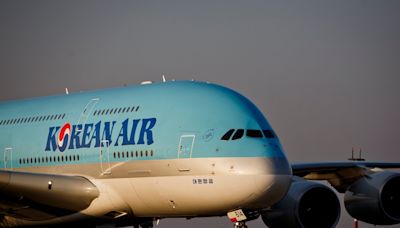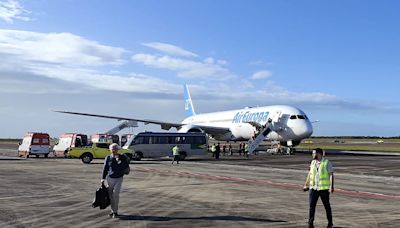Search results
In fluid dynamics, turbulence or turbulent flow is fluid motion characterized by chaotic changes in pressure and flow velocity. It is in contrast to a laminar flow , which occurs when a fluid flows in parallel layers, with no disruption between those layers.
Turbulence is a state of confusion, disorder or strong movements in air or water. Learn how to use this word in different contexts, see examples and related words and phrases.
Learn the meaning of turbulence as a noun, with synonyms, examples, and word history. Turbulence can refer to great commotion, irregular atmospheric motion, or departure from smooth flow.
May 21, 2024 · Turbulence is a flow condition in which local speed and pressure change unpredictably as an average flow is maintained. Learn about the characteristics, causes, and effects of turbulence in fluids, and how it relates to Stokes's law and golf balls.
- The Editors of Encyclopaedia Britannica
Learn the meaning of turbulence as a situation of sudden change, trouble, argument and sometimes violence, or as a series of violent changes in air or water movement. See synonyms, collocations and word origin of turbulence.
May 21, 2024 · Mechanical turbulence happens when air encounters obstacles such as mountains or buildings; while wake turbulence is generated by aircraft vortices – circular patterns of rotating air left behind a wing as it generates lift – or jetwash, which are gases expelled from the engine.





